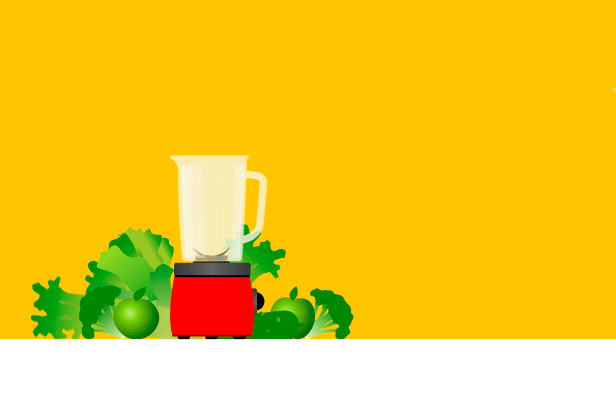5/5 experts say yes.
The tally is in, and green juice is a go, say all five of our experts.
A store-bought, veggie-heavy green juice can contain 36% of your daily recommended potassium and 20% of daily vitamin A, with 12 grams of natural sugar, no fat and 4 grams of protein. Juicing your own fresh glass will likely net even more nutrients.
“Veggie juice is very healthy,” says Barry Popkin, PhD, professor of nutrition at the University of North Carolina at Chapel Hill School of Public Health. And way healthier, he says, than fruity concoctions like smoothies, which Popkin recently came down against in this very series. The main concern about juicing and blending—that pulverizing produce lets sugar rush into your bloodstream faster without fiber—isn’t a big issue with juice made from vegetables. “It is low in sugar, so quite different,” Popkin says.
That’s assuming your green juice is getting most of its color from vegetables, not fruit juice plus a pinch of kale, says Dr. Lydia Bazzano, a physician and director of the Center for Lifespan Epidemiology Research at the Tulane University School of Public Health and Tropical Medicine. Her research on fruit and vegetables juices found that vegetables—especially the green leafy kind—were linked to less risk of developing diabetes. Drinking fruit juice, on the other hand, was associated with more of a risk of developing diabetes.
Green juice might help improve cholesterol, too. One small study gave 32 men with high cholesterol a little less than a cup of kale juice every day for three months and found that for non-smokers, the HDL- to LDL-cholesterol ratio improved by 52%, and selenium levels went up.
But don’t drink too much of a good thing, warns Kristi King, senior clinical dietitian at Texas Children’s Hospital. “It should be used as part of an overall, well-balanced diet and not for ‘cleanses’ or ‘detoxes,’ as that is what we have kidneys and livers in our bodies for,” she says.
Speaking of kidneys, people with kidney disease or kidney stones should be wary of juicing, says Dr. Mary Jo Kasten, assistant professor of medicine at the Mayo Clinic. Kasten wrote an article about a patient with kidney disease who experienced kidney failure after a six-week juice fast. Certain foods—like beets and spinach and even iced tea, the culprit behind a recent case of kidney failure—are rich sources of oxalate, a natural compound that can increase kidney stones and kidney damage in people with diseased kidneys. But juicing is fine for most people, Kasten says.
Most of us, of course, aren’t anywhere close to overdosing on vegetables; according to the USDA, the average American eats just half of the recommended amount of vegetables every day, and only 10% of what we do get down is dark green. “It is better to eat than to drink veggies and fruits,” says Dr. David Katz, director of the Yale University Prevention Research Center. “But it is better to drink them than not to have them at all.”

More Must-Reads from TIME
- Donald Trump Is TIME's 2024 Person of the Year
- Why We Chose Trump as Person of the Year
- Is Intermittent Fasting Good or Bad for You?
- The 100 Must-Read Books of 2024
- The 20 Best Christmas TV Episodes
- Column: If Optimism Feels Ridiculous Now, Try Hope
- The Future of Climate Action Is Trade Policy
- Merle Bombardieri Is Helping People Make the Baby Decision
Write to Mandy Oaklander at mandy.oaklander@time.com